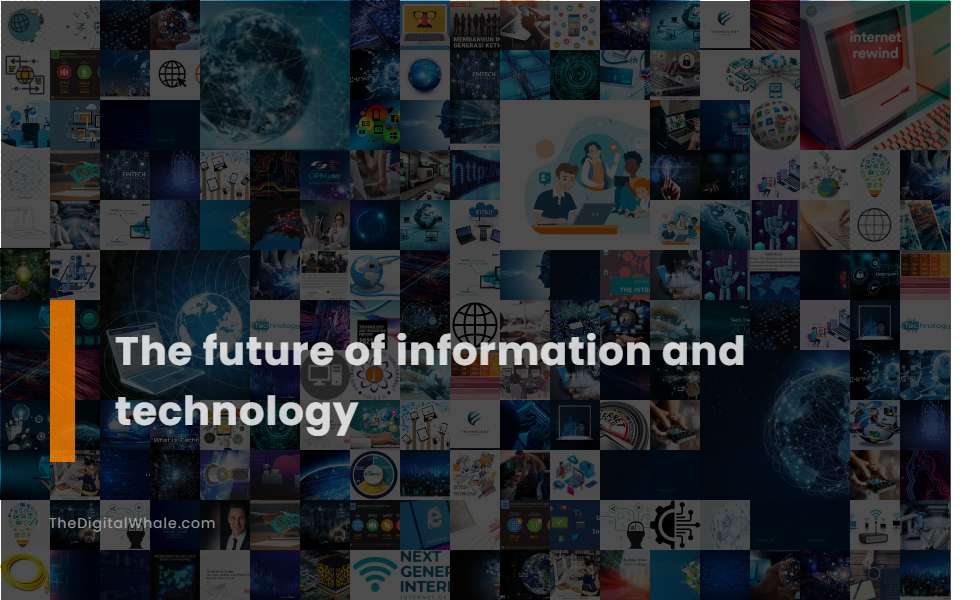The Future of Information and Technology
What are the possible solutions to the information technology (IT) problem? What are the benefits of using information technology to improve your business? Let's find out more about The Future of Information and Technology.

Artificial Intelligence (AI) and Machine Learning (ML)
The future of AI and ML is marked by significant advancements, including improved computer vision, the development of all-purpose models, distributed ML portability, and the rise of reinforcement learning, which will transform fields such as healthcare, transportation, and cybersecurity by enhancing accuracy, efficiency, and decision-making capabilities. For more insights on the transformative impact, explore the Future of Machine Learning which delves into these innovations and their potential implications for various industries.
The Internet of Things (IoT)
The future of the Internet of Things (IoT) in 2024 is marked by several key trends, including the adoption of 5G networks for faster and more reliable connectivity, the integration of AI for real-time data analysis and predictive maintenance, the use of digital twins for simulating and optimizing physical systems, and the emergence of the metaverse for immersive experiences. These technologies are expected to enhance IoT applications in areas such as smart cities, healthcare, and manufacturing, while also driving innovations in edge computing, blockchaın security, and chip-level innovations. For more insights, visit the Technology Trends in IoT page.
Cloud and Edge Computing
The evolving landscape of information and technology prominently features advancements in cloud and edge computing, with trends such as the augmentation of edge AI, integration with 5G networks, the emergence of edge containers, and the adoption of Edge-as-a-Service (EaaS). These developments are strategically aimed at reducing latency and enhancing security while optimizing real-time data processing. As Edge Computing Trends continue to evolve, processing data closer to its source is prioritized to minimize latency, leveraging technologies such as 5G and IoT devices. This shift strives to avoid costly cloud services, consequently enabling faster and more efficient real-time data processing and decision-making. Furthermore, forecasts indicate substantial investment growth in edge computing by 2026, highlighting its increasing role in alleviating the strain on central data centers, boosting processing speeds, and supporting IoT devices and applications.
Big Data and Augmented Analytics
The future of Information and Technology in Big Data and Augmented Analytics involves the integration of AI and ML to automate data preparation, insight discovery, and sharing. Augmented Analytics will handle complex and vast datasets, democratize access to insights, and enable real-time analytics, making Business Intelligence more accessible and efficient across all levels of an organization.
Blockchain and Distributed Ledgers
The future of blockchain and distributed ledgers involves shifting from first-generation blockchains to more sophisticated and specialized systems, focusing on interoperability, scalability, enhanced security, and integration with AI and IoT, which will revolutionize industries such as supply chain management, healthcare, and governance. As detailed in the Future Of Distributed Ledgers Post-Blockchain, these advancements will redefine the way these sectors operate by facilitating more efficient and secure data management and transactions.
Related:
What is the AI of the future? What are the potential implications of IoT for the business world? Let's find out more about Ais Impact On Different Industries.
Wearables and Augmented Humans
The future of wearables and augmented humans involves significant advancements in health monitoring, augmented reality, smart clothing, and brain-computer interfaces. These technologies will enable personalized healthcare, enhanced productivity, and seamless integration of technology into daily life, transforming how we interact with the world and our own bodies. For further insights into these innovations, explore the Future of Wearables and discover how these advancements are shaping a new era of augmented human experiences.
Intelligent Spaces and Smart Places
The future of intelligent spaces and smart places involves the integration of technologies like IoT, AI, and data analytics to create efficient, sustainable, and user-centric environments, transforming how we live, work, and interact with our surroundings. The Smart Spaces market is forecasted to reach a global market value of $38.7 billion by 2028. For more insights into these cutting-edge developments, explore the innovations offered by Momenta Smart Spaces, which are leading the charge in this transformative field.
Cybersecurity and Data Privacy
The future of Information and Technology in cybersecurity and data privacy involves a heightened focus on AI and Machine Learning, enhanced consumer rights, stricter enforcement with heavier penalties, and the integration of emerging technologies like blockchain and neural networks. These advancements aim to enhance security and transparency while managing new challenges and risks. For a deeper understanding of these developments, visit the Evolving World of Data Privacy for an insightful exploration of current trends and strategies. This integration is critical in navigating the complexities of modern cybersecurity landscapes.
Quantum Computing
Quantum Computing is poised to revolutionize various fields by leveraging qubits to perform complex calculations at unprecedented speeds, promising breakthroughs in areas such as cybersecurity, material science, drug discovery, financial modeling, and sustainable technologies like battery optimization and climate change mitigation.
Virtual Reality (VR) and Augmented Reality (AR)
The future of Virtual Reality (VR) and Augmented Reality (AR) is marked by significant advancements, including the integration of AI, haptic feedback, eye-tracking, and the rollout of 5G networks, which will enhance user experiences, enable faster data transfer, and expand applications in fields such as education, healthcare, and retail. These technologies are expected to blur the lines between the real and virtual worlds, offering highly immersive and interactive experiences that will transform various industries and aspects of daily life. For more insights into how these innovations will impact society, visit the CIO Insights Blog.
Related:
What are the benefits of using technology in hiring? What are some ways technology can enhance modern recruitment? Let's find out more about The Role of Technology In A Company's Recruiting Process.
